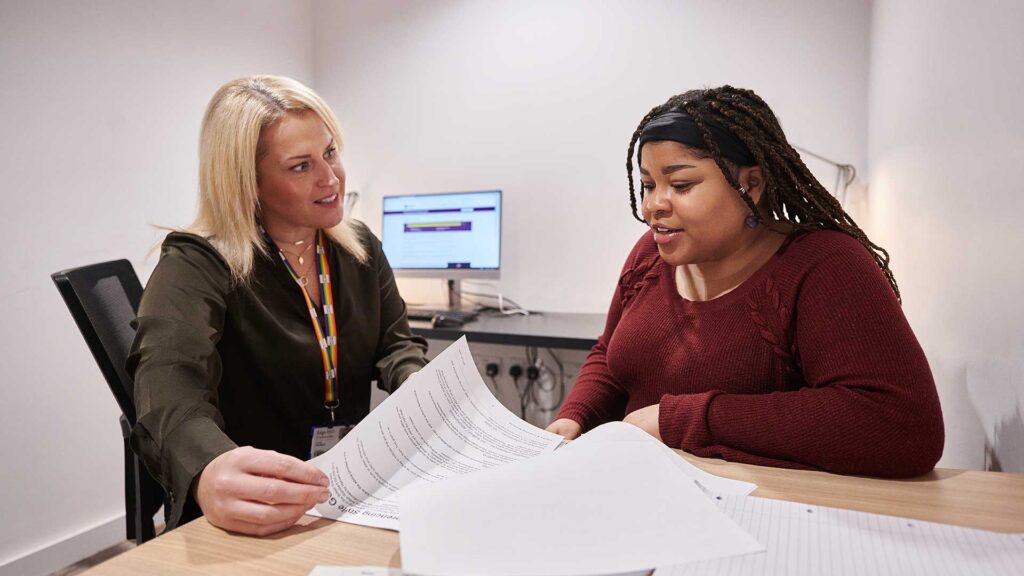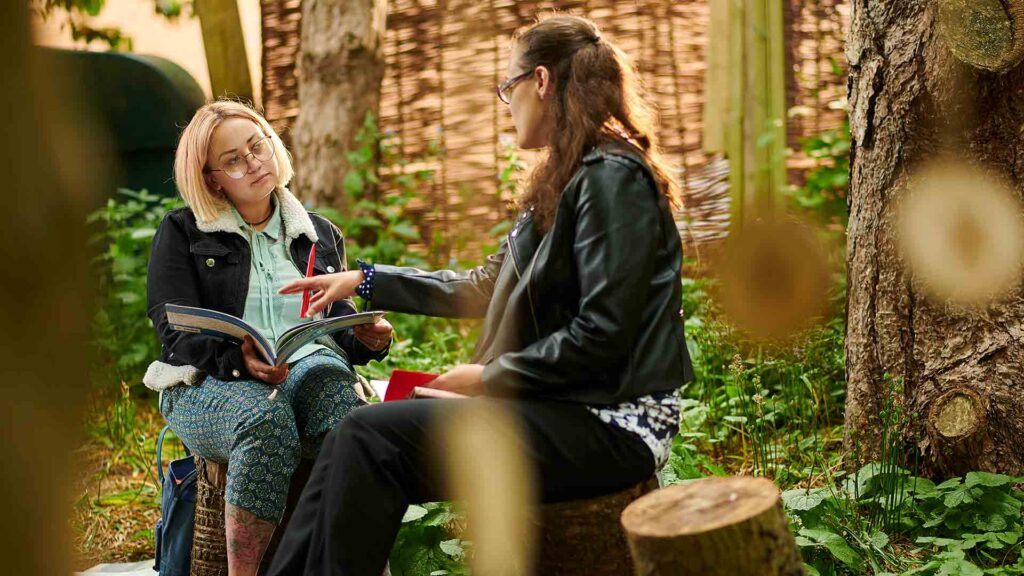Edge Hill ITE Partnership recognises that trainees have diverse identities. The Partnership is committed to supporting all trainees to experience a sense of belonging and to upholding the legal duties which are outlined in the 2010 Equality Act. We are committed to inclusion, equality of opportunity and equity for both trainees and pupils. Working with the University team, Link Tutors and Mentors we all endeavour to provide a high quality and effective environment for trainees to develop as novice teachers, amending and adapting to support a growing professional identity.
Click here for more information on supporting workload
Placing trainees at the centre of all decision making

Some trainees may have support plans where they may be willing to share their assessed needs or condition with supporting strategies which they may use in their daily lives. There may be some reasonable adjustments in place, which they may discuss with you, to ensure equality of opportunity.
Risk Assessments
In order to identify measures to control the risks when on Professional practice, our trainees who have a condition which poses a risk to their health, such as epilepsy, diabetes or a physical condition, will have a Risk Assessment in place. This would be sent to the Mentor indicating the risk to their health, with controls in place and managed, ensuring that we are compliant with Health and Safety at work.
Supporting trainees with Student Support Plans.
Coming soon mentor training links here for supporting trainees with specific needs.
Equality
It is unlawful for a school to discriminate against a pupil or prospective pupil (or a trainee) by treating them less favourably because of their:
- sex
- race
- disability
- religion or belief
- sexual orientation
- gender reassignment
- pregnancy or maternity
It is also unlawful to discriminate because of a characteristic which you think a person has, even if you are mistaken.
If a trainee has a protected characteristic and you are aware of this, it is always a good starting point to discuss with the trainee what support they might require to enable them to succeed. Some trainees may have a protected characteristic, but they may not wish to share this with the school and that is their choice.
In cases where trainees have a protected characteristic and they are willing to share this with the school, a meeting with the mentor, link tutor and trainee prior to the start of placements or at the QA1 or 2 meeting is a good opportunity to identify what support the trainee may need.



References
Equality Act 2010: advice for schools
Department for Education (DfE), (2019), ITT Core Content Framework, London: DfE.
Initial teacher education (ITE) inspection framework and handbook – GOV.UK (www.gov.uk)
https://www.legislation.gov.uk/ukpga/1974/37/section/2
https://www.gov.uk/government/publications/send-code-of-practice-0-to-25
https://educationadvocacy.co.uk/send-code-of-practice/
Links to support trainees
Inclusion – Edge Hill University
Student Support team at EHU
Wellbeing at EHU

